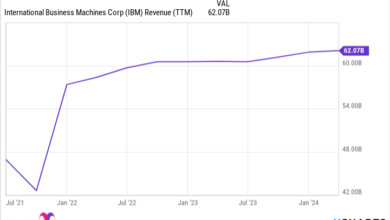Google’s AI Search Feature Fuels Content Traffic Concerns

Google’s new artificial intelligence (AI)-powered search summaries could significantly impact online publishers by driving users away from their websites and toward the tech giant’s own results, potentially reshaping the online landscape and raising concerns among content creators who rely on website traffic for advertising revenue.
The feature, set to reach more than a billion people by the end of the year, generates topic summaries that may reduce the need for users to click through to other websites. Industry experts also point to the growing threat of competition from AI startups like OpenAI, which could challenge Google’s dominance in search and reshape the landscape of online commerce.
“For so long, website owners and SEO specialists have written articles to game search algorithms,” Onajite Omare, founder of Konvart, a search engine optimization (SEO) tool that uses AI, told PYMNTS.
“You could search for a recipe on Google, but the first few results will include 2000 words about the history of the food or what the chef was thinking when considering cooking that meal. This is a lot of unnecessary information when all you want is a simple recipe,” Omare said. “We have seen similar in the product review market, a lot of text without direct experience with the product in order to rank high. With AI, you can immediately get the answer you are looking for without extra jargon.”
Google’s AI Search Continues
Google’s AI will generate search summaries for complex queries or when users brainstorm or plan. The search engine will prioritize traditional website links and ads for simple searches like finding local businesses or checking the weather.
The company plans to integrate assistant-like planning capabilities directly into search, allowing users to request tasks like creating a 3-day meal plan and receiving a variety of recipes from the web.
Google also announced progress toward “multimodality,” testing features where users can ask questions through video. For example, users could film a malfunctioning product, upload the video, and have the search engine diagnose the issue, as demonstrated with a broken record player.
The mobile search space may also be up for grabs. Bloomberg reported Friday (May 10) that Apple is finalizing a deal to integrate OpenAI’s ChatGPT into iOS 18 and is also discussing licensing Google’s Gemini chatbot.
AI-powered search could be bad news for many websites that rely on clicks. According to research firm Gartner, traditional search engine volume will decrease by 25% by 2026, with AI chatbots and other virtual agents capturing a significant portion of the search marketing share.
“Organic and paid search are vital channels for tech marketers seeking to reach awareness and demand generation goals,” Alan Antin, vice president analyst at Gartner, said in a news release. “Generative AI (GenAI) solutions are becoming substitute answer engines, replacing user queries that previously may have been executed in traditional search engines. This will force companies to rethink their marketing channels strategy as GenAI becomes more embedded across all aspects of the enterprise.”
AI Search Options
When discussing the most effective AI tools for internet searches, Omare highlighted Gemini and ChatGPT as particularly useful for locating specific information. However, she emphasized that for AI competitors to challenge Google truly, they will need to change users’ default search behavior.
“Four billion people use Google, which still retains the highest share of the search engine market,” Omare said.
AI companies could partner with popular web browsers to become the leading search engines. They might also target specific markets, such as research-intensive businesses, Omare said. She also discussed the impact of AI searches on online commerce, stating: “AI models must improve to provide accurate links to products or services for direct purchase or lead generation.”
Marc McCollum, the chief innovation officer of Raptive, told PYMNTS that he has deep concerns about the implications of generative search for content creators.
“Our initial analysis suggests that SGE could significantly reduce the traffic directed to content creators’ websites, directly impacting their ad revenue and, by extension, their livelihoods,” McCollum said, estimating that “the total revenue impact to creators would be $2 billion within one year.”
McCollum also questioned the use of content creators’ intellectual property.
“The current model does not adequately compensate creators for the use of their work, nor does it align with the principles of fair use,” he noted.
He emphasized that this is a matter of survival for many independent creators.
“Content creators are the backbone of a diverse and vibrant digital ecosystem, and their work deserves recognition and remuneration,” McCollum said.
Not everyone is gloomy about AI search’s prospects. Michael Hasse, a cybersecurity and technology consultant, told PYMNTS that AI-based search can be both helpful and hindering for consumers looking for specific products like jackets.
“With traditional search functionality, the first few pages of results will be dominated by companies that have perfected their SEO or paid for preferential placement,” Hasse said. This often leads to consumers settling for products that are merely “good enough.”
However, AI-based search can potentially find “the boutique product that is ‘perfect’, but had been twenty pages deep and unseen before.” Hasse noted that “the AI has done the hard work of delving through a far greater number of results than any human could have time or energy for to find the perfect item.”
On the other hand, Hasse warned of the “dark side” of AI-based search, where “enterprising SEO experts will use AI to generate millions of ‘products’ to fulfill every possible combination of features and functionality in hopes of capturing the AI-based market.” This could lead to a new challenge of determining what products are real in a vast sea of “vaporware.”
The impact of AI-powered search might already be noticeable.
Shawn Daly, a marketing professor at Niagra University, told PYMNTS that “AI is already taking away Google search customers … With ChatGPT fully integrated into search Microsoft Copilot, Bing has been gaining about 0.5% per month the last few months.”
Additionally, he predicted: “Anthropic’s Claude product and other major AI players will find partners to challenge Google’s dominance.”
Daly addressed the impact of AI searches on online commerce, stating: “Uncertainty is AI’s main contribution to eCommerce.”
He explained that unlike the stable and relatively easy-to-understand Google SEO rules and PPC rates, “digital marketers will have a more difficult time navigating a multi-polar future without one grand monopolist, and the black box AI model for ranking and inserting advertising isn’t likely to be nearly as easy to organize and manipulate.”
Google’s integration of artificial intelligence into its search and workspace tools has sparked both excitement and concern among early beta testers and industry observers. Katie Wilson, founder of Serious Moonlight Consulting, has been testing the AI-powered features and told PYMNTS she appreciated the consolidated research and answers provided by the AI-enhanced search results.
She also expressed concern about the potential impact on publishers and content creators.
“Many folks are wondering if this is the end of link-based search and how user behavior will evolve,” Wilson said. “Also how this will affect those that make a living from traffic coming to their sites for ads revenue.”
As Google continues to roll out its AI-powered features, questions arise about the future of user behavior and click-through rates.
“If something is summarized in the first view, why click over to a site?” Wilson asked. She said these themes will be addressed at the upcoming Google Marketing Live event, where AI-integrated ads and tools are expected to be announced.
What’s Ahead for Search
So, what does all this mean for the future of the internet? It’s hard to say for sure. Google is in a tricky position here. On one hand, they want to give users the best possible experience by providing quick, accurate answers to their questions. But on the other hand, they can’t just cut out all the publishers and advertisers who create the content that makes the internet what it is.
Google will need to balance several factors. They’ll need to find ways to use AI to improve and speed up search while still ensuring users have a reason to click through to websites and engage with the content there. Publishers and advertisers will also keep a close eye on this because their livelihoods depend on people visiting their sites.
Ultimately, the impact of Google’s AI push is still a big question mark. Will it change how we use the internet, or will it be a gradual shift? Will publishers and advertisers find new ways to adapt, or will some get left behind? We’ll be watching these closely in the coming months and years as Google continues to roll out these AI features.
One thing’s for sure — the internet never stays the same for long, and Google’s always been at the forefront of those changes. It’ll be interesting to see where they take us next.



